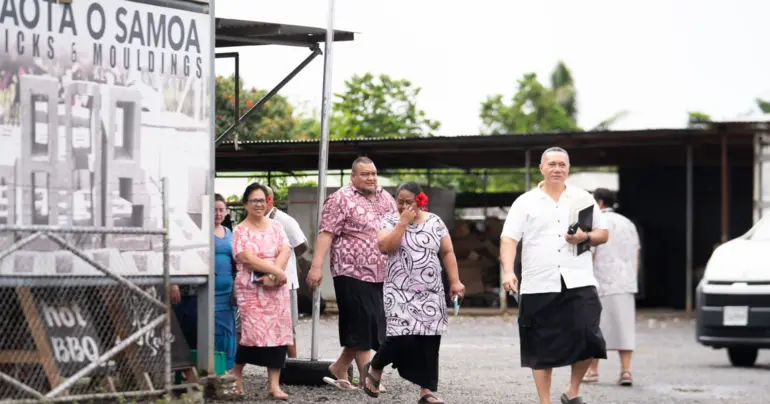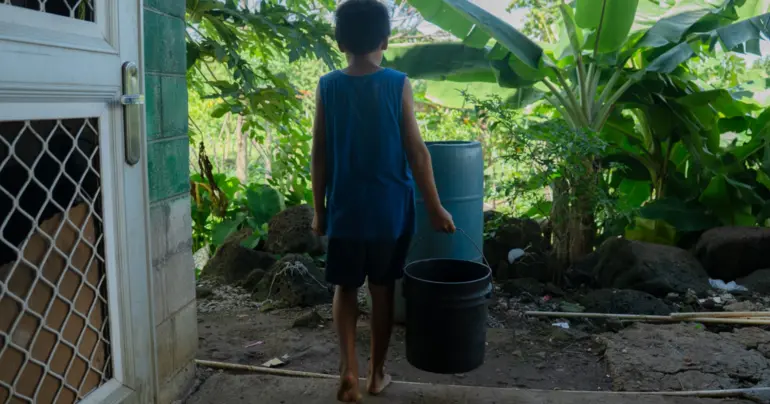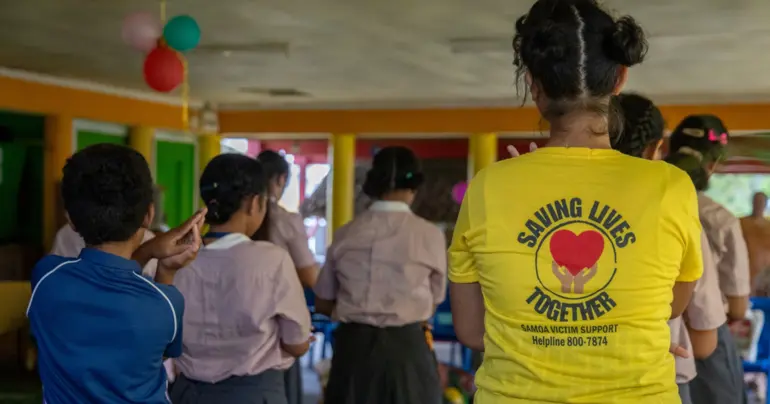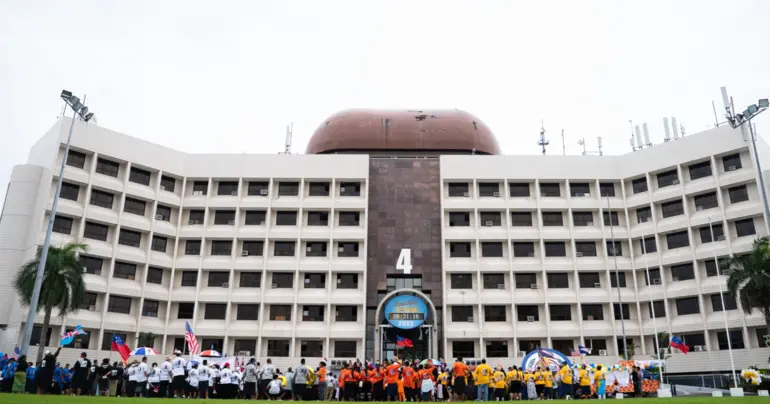Bringing back traditional foods could be a good thing
The Oxford Dictionary describes nostalgia as a sentimental longing or wistful affection for a period in the past. The crunchy taste of sea grapes, mixed with tomatoes, onions, pounded garlic and either with or without coconut milk, and a can of tuna with some taro or ulu, how nostalgic is that?
It is amazing how scientists are now realising the nutritional value of limu, something our ancestors have known for centuries. The bounty of the sea that we have enjoyed for more than a millennium. However, it is saddening to notice that the food consumed by our ancestors is disappearing from the tables we set for families.
Limu or seaweed has very good nutritional value but how many Samoans are consuming it? This food is available in abundance but the consumption of it is dying out. A major factor is the preference for imported food over homegrown food. This is a dangerous precedent because this shows the dependence on imported foods. Foods that are processed and hold very little nutritional value.
Increasing the supply of imported unhealthy foods relative to domestic production of healthy foods, therefore, increases rates of non-communicable diseases (NCDs) and erodes domestic food security.
There were times when we can recall the older generation of Samoans who worked the land and the sea for food. They were unique specimens of men and women. The men were chiseled and defined and the women beautiful as ever because processed foods were not in their diet. Every home in the village had a canoe that the men and boys used to bring in fish instead of the tinned fish that the child is sent to purchase from the neighbourhood shop.
This is a concern because the move from our common and known food sources is the reason why Samoa is engulfed in a non-communicable disease crisis. This is not only impacting the health system, it is affecting the national budget and sadly Samoan families are having to deal with this as well. Diabetes, kidney diseases, cardiac problems, high blood pressure, liver problems and other related diseases which were non-existent during the time of our ancestors are impacting our daily lives.
The World Health Organisation reports that NCDs disproportionately affect people in low- and middle-income countries where more than three-quarters of global NCD deaths – 32 million – occur.
Many more millions are disabled. These conditions are often associated with older age groups, but evidence shows that 15 million of all deaths attributed to NCDs occur between the ages of 30 and 69 years. Of these “premature” deaths, over 85 per cent are estimated to occur in low- and middle-income countries such as Samoa.
Children, adults and the elderly are all vulnerable to the risk factors contributing to NCDs, whether from unhealthy diets, physical inactivity, exposure to tobacco smoke or the harmful use of alcohol, many of which result from or are made worse by modifiable behaviours.
According to WHO, tobacco accounts for over 7.2 million deaths every year (including from the effects of exposure to second-hand smoke), and is projected to increase markedly over the coming years.
One million annual deaths have been attributed to excess salt/sodium intake and more than half of the 3.3 million annual deaths attributable to alcohol use are from NCDs, including cancer. Six million deaths annually can be attributed to insufficient physical activity.
Last year Samoa spent $11 million tala to take people for overseas treatment and the biggest budget allocation is for the Ministry of Health. We can be smart about NCDs even through government policies and there is a serious need for government intervention.
Physical education in schools needs to be made compulsory. Children need to get into sports. As it is, the current generation is spending most of their time being glued to the phone. Scenes where five or six children are surrounding one with a mobile phone playing PUBG or Call of Duty is becoming a common sight in most villages.
Village councils need to bring back gardening and farming so people stop relying on imported food and have open spaces for people to enjoy afternoon sports. Churches can also do this and seriously consider the fact that a ‘body is a temple’ and ‘you are what you eat’.
The government can play the most vital role by increasing taxes on sugary drinks, snacks with monosodium glutamate and fatty foods. The import of fatty meats should also be stopped and all vegetable imports to be tax-free.
The Ministry of Agriculture seriously needs to pull up its socks. There are so many vegetables that can be grown locally and incentives should be provided to farmers so more people with land pick up on this. Boats should be provided to all villages near the sea so fishing can be done for consumption instead of buying ‘elegi’.
There are so many things that can be done but the first step to fighting NCDs should come from an individual. Samoans have to realise that we are eating, smoking and drinking ourselves to death. The sugar shortage some weeks back caused more panic than the water shortage.
Wake up and realise that the current lifestyle most Samoans are living is leading them to early graves.
Are we becoming a burden not only on our families but to every Samoan because it is the taxpayer footing the bill for the habits that we can break away from?











